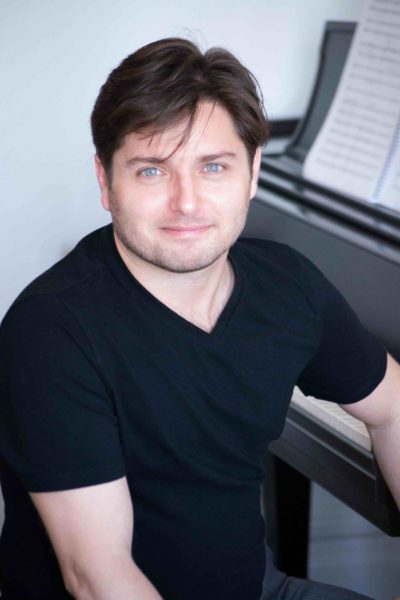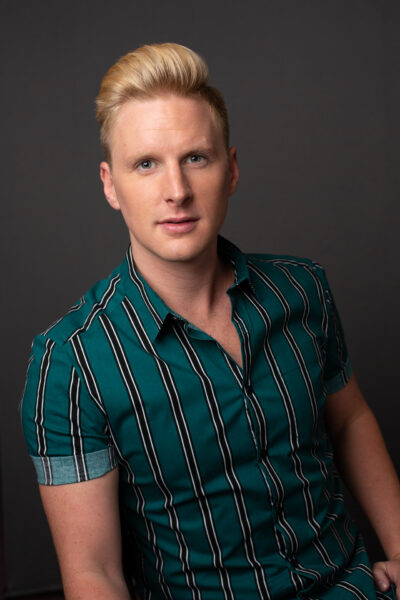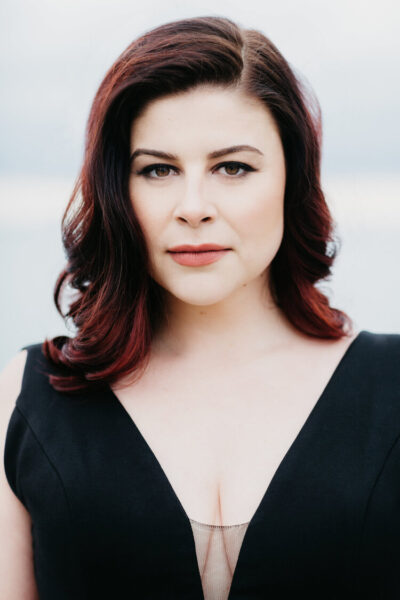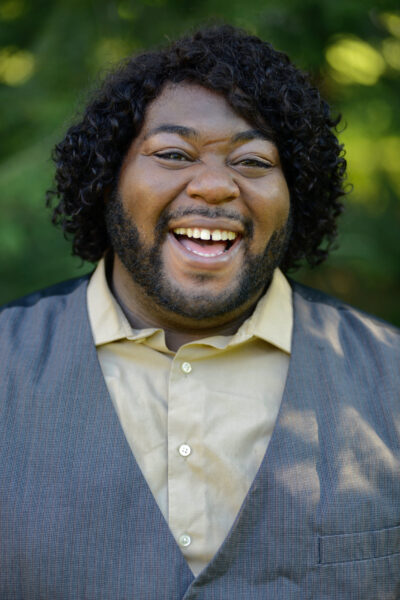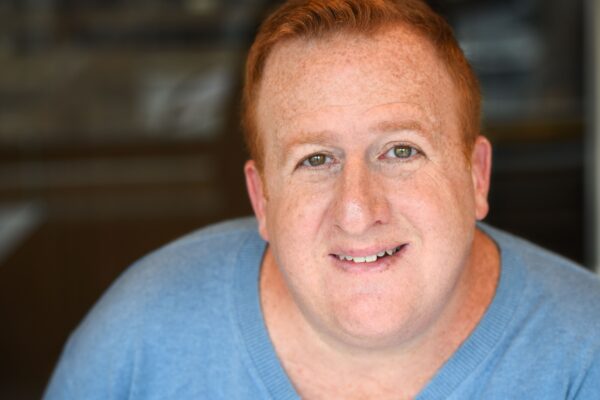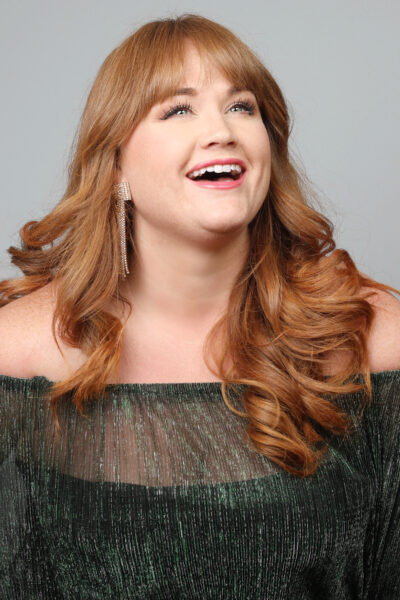The best musicians tend to have been singing or playing or composing for most of their lives. They sometimes face choices between talents, knowing that refining either of them would take decades.
Tyson Deaton had that problem. As a piano major in college, he joined the voice studio of Richard Best – formerly one of the Metropolitan Opera’s perennial basses – as an accompanist. Best told him, “If you are going to work with singers, you should learn how to sing.” Deaton soon became fascinated by vocal music and singing.
For Deaton’s graduate degree recital at the Cincinnati College-Conservatory of Music, he was to play Debussy’s Cinq poèmes de Baudelaire and Wagner’s Wesendonk Lieder. He had hoped and expected his professor, who was previewing the weekend’s recitals, might mention it to the class. Deaton remembers his disappointment as the professor ticked off his must-see events but did not mention his debut.
“I thought, ‘Well, he’s not going to mention my recital,’” said Deaton. “Then he got to the very end and he said, “I want to alert you to a very special recital,” followed by the time and location of Deaton’s performance.
“Then I thought, ‘Oh my god, I’m in for it now,” he said. What if everyone showed up expecting perfection but only came away with so-so? Such was Deaton’s finely tuned state, keyed on making the most of his multiple, considerable talents and fearful he would fall short.
Deaton, who is now based in New York, went on to an accomplished career as a collaborative pianist, working with legendary names in opera. His study not only of voice but of languages and poetry have made him a sought-after coach for up-and-coming singers. His insatiable appetite for books about history and performance practice old and new means that much of his scholarship came after grad school, leading him deeper into Classical and Romantic opera and contemporary music. Meanwhile, he coaches singers who frequently perform at The Metropolitan Opera, La Scala, the Deutsche Oper Berlin and many more, urging patience.
“I often remind younger musicians, that this profession takes time,” he said. “This is not something that you are going to do in five years. If you find someone who materializes after a five-year period, and all of a sudden they’re saying all the right things and doing all the right things, that probably isn’t a career that’s going to last. Conducting specifically takes a long time and involves a significant accumulation of skills and knowledge.”
Few could have predicted his own path, least of all Deaton himself. He was born and raised in Marion, Ill., the only child of working-class parents.
“I could play the piano from the time I was 3,” he said. “My grandmother had an old electronic organ. I started playing around with it and eventually taught myself how to read music.”
By middle school he was taking piano lessons and dabbling with other string instruments. Most of the music he listened to came over the radio.
“Eric Clapton was in there somewhere,” he said, “as was Billy Joel. And Michael Jackson because Thriller was a thing. Kansas was out there around that time.
“I remember very specifically being in high school and we were in someone’s garage decorating a float for the homecoming parade. We had the radio on, and Billy Joel’s In the Middle of the Night was a hit at the time. Within a four-hour period that song played seven times. Talk about being force-fed. I knew it by heart by the time that four hours was finished.”
A show about classical music on the local college radio station hooked him, in part because it seemed just out of reach. “You would hear (a composer) you liked and then go to the record store. If it’s not there, you have to order it and wait two weeks for it to come in. We have the luxury today of most music being immediately available, so it’s not necessarily something we have to work at acquiring.”
By his freshman year at the University of Illinois at Carbondale he had met others who were also fixated on classical music. “It becomes like an addiction in some ways,” he said. “There is always a new performer, a new opera, a new song, with all different languages from nearly every time period. Every performer does something slightly different, and I always was fascinated by that. Technique was always stressed, but with the idea that it was meant to be expressive. That was likely what I found addictive, as well as the precision and freedom of the rehearsal and performance processes.”
Performing after grad school took him down even more musical tributaries. He taught master classes and worked with individual opera singers, all while continuing to play in recitals, with orchestras or in operatic productions. He has frequently partnered with baritone Matthew Worth, as well as Denyce Graves, Julie Landsman and others. Asked what traits he admires most in prospective collaborators, Deaton said that enthusiasm and knowing what you want to accomplish goes a long way.
“The voice has to be there, but the voice isn’t as important as them having something to say and a willingness to work,” he said. “So I would say talent, character, and intelligence definitely.”
A personnel emergency in 2008 led to his most significant career development: The Sarasota Opera – where Deaton was serving as rehearsal pianist and coach – had lost not only its conductor for a rehearsal of Madama Butterfly, but the conductor’s cover was also unavailable. Would Deaton take the baton?
“I was not particularly happy about that,” he said. “I did not want to be a conductor. I had no interest in it.”
He nonetheless stepped into the role. “I began to see a few years later that this was a career path I should explore.”
In 2013, the Fort Worth Opera asked him to conduct a premiere of Glory Denied, Tom Cipullo’s opera about U.S. Army Col. Jim Thompson, the longest-serving prisoner of war in the country’s history.
“This was literally my first conducting gig,” Deaton said. “It was a culmination of all the skills I had learned up until that point, and I knew I had to knock it out of the park. I prepared for months and had broken the opera into about 35 sections, learning everything I could about each page with careful attention to what each voice and instrument may need at any given moment to encourage expression or emotional attitude.”
To compound the pressure, the performance was being recorded for commercial release. Opera News called the performance “epic in its scope and effect,” and named the recording one of the best of the year. Washington Post also named Glory Denied one of the best performances of 2013.
Deaton has since conducted for the New York City Opera, the San Francisco Opera and many more. Due to the coronavirus, he’s awaiting word on when some of his bookings might return. In the meantime, he has become a quick study of the technology required to create music in the age of COVID-19, evidenced by a new performance of “Mir ist so Wunderbar” from Beethoven’s Fidelio with sopranos Emily Misch and Mary Hollis Hundley, tenor Michael Day and baritone Nathan Stark.
“Artists never just ‘hang out,’ without making music, particularly during a pandemic, so some friends from Athlone Artists and I found something to work on together as an experimental project,” he says. “There is still much to learn about technology and how our various setups work (or don’t work!) together, but this is our maiden voyage! These remotely produced productions are never going to be like a live performance; any recording loses a bit of something, but this is a different medium entirely from even studio recording. Though I felt a bit like Dr. Frankenstein at times, as the process went along, I think we all enjoyed watching the pieces being put together one at a time. I will always be a live musician first, but I am interested in doing more of this, perhaps something much larger, if I have time.”
Deaton also keeps busy studying scores, reading on a variety of musical and non-musical topics, and calling at least one person a day “just to stay in circulation.” The same kinds of daily disciplines that got him this far.
— Andrew Meacham
